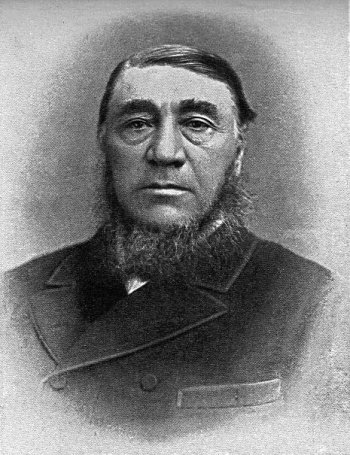Kruger Day on:
[Wikipedia]
[Google]
[Amazon]

 Kruger Day or Heroes' Day was a official public holiday in South Africa from 1882 to 1899 and again from 1952 to 1994, which celebrated annually on 10 October. The day was named after
Kruger Day or Heroes' Day was a official public holiday in South Africa from 1882 to 1899 and again from 1952 to 1994, which celebrated annually on 10 October. The day was named after

 Kruger Day or Heroes' Day was a official public holiday in South Africa from 1882 to 1899 and again from 1952 to 1994, which celebrated annually on 10 October. The day was named after
Kruger Day or Heroes' Day was a official public holiday in South Africa from 1882 to 1899 and again from 1952 to 1994, which celebrated annually on 10 October. The day was named after Paul Kruger
Stephanus Johannes Paulus Kruger (; 10 October 1825 – 14 July 1904) was a South African politician. He was one of the dominant political and military figures in 19th-century South African Republic, South Africa, and President of the So ...
, a South African politician who served as president of the South African Republic
The South African Republic ( nl, Zuid-Afrikaansche Republiek, abbreviated ZAR; af, Suid-Afrikaanse Republiek), also known as the Transvaal Republic, was an independent Boer Republic in Southern Africa which existed from 1852 to 1902, when it ...
; the holiday celebrated his birthday
A birthday is the anniversary of the birth of a person, or figuratively of an institution. Birthdays of people are celebrated in numerous cultures, often with birthday gifts, birthday cards, a birthday party, or a rite of passage.
Many re ...
on October 10. The day was used to underline the values and principles of the Afrikaner people
Afrikaners () are a South African ethnic group descended from predominantly Dutch settlers first arriving at the Cape of Good Hope in the 17th and 18th centuries.Entry: Cape Colony. ''Encyclopædia Britannica Volume 4 Part 2: Brain to Casti ...
.
Origin
Kruger Day was first celebrated in 1882, whilePaul Kruger
Stephanus Johannes Paulus Kruger (; 10 October 1825 – 14 July 1904) was a South African politician. He was one of the dominant political and military figures in 19th-century South African Republic, South Africa, and President of the So ...
was serving as a politician in the South African Republic
The South African Republic ( nl, Zuid-Afrikaansche Republiek, abbreviated ZAR; af, Suid-Afrikaanse Republiek), also known as the Transvaal Republic, was an independent Boer Republic in Southern Africa which existed from 1852 to 1902, when it ...
. Kruger was then the vice president, but because he enjoyed so much respect from his people, his birthday was commemorated with a day of feasting. The following year it was officially introduced as a public holiday.
20th century
Use of the holiday ended in 1902, after theBritish
British may refer to:
Peoples, culture, and language
* British people, nationals or natives of the United Kingdom, British Overseas Territories, and Crown Dependencies.
** Britishness, the British identity and common culture
* British English, ...
defeated the Boer republics in the Second Boer War
The Second Boer War ( af, Tweede Vryheidsoorlog, , 11 October 189931 May 1902), also known as the Boer War, the Anglo–Boer War, or the South African War, was a conflict fought between the British Empire and the two Boer Republics (the South ...
. In 1910, with Unification, the day was still not recognized as a public holiday, though popular celebrations of a heroes' day did take place. An event in Cape Town on 25 March 1916 included a march by banner-carrying students, followed by several public addresses in the city hall.
A few years after the National Party came to power in South Africa
South Africa, officially the Republic of South Africa (RSA), is the Southern Africa, southernmost country in Africa. It is bounded to the south by of coastline that stretch along the Atlantic Ocean, South Atlantic and Indian Oceans; to the ...
, the day was introduced again as Heroes' Day (Afrikaans
Afrikaans (, ) is a West Germanic language that evolved in the Dutch Cape Colony from the Dutch vernacular of Holland proper (i.e., the Hollandic dialect) used by Dutch, French, and German settlers and their enslaved people. Afrikaans gra ...
: Heldedag) from 1952 onward. From time to time, later governments referred to it as either Heroes' Day or Kruger Day. With the ANC
The African National Congress (ANC) is a social-democratic political party in South Africa. A liberation movement known for its opposition to apartheid, it has governed the country since 1994, when the first post-apartheid election install ...
government coming to power in the 1994
File:1994 Events Collage.png, From left, clockwise: The 1994 Winter Olympics are held in Lillehammer, Norway; The Kaiser Permanente building after the 1994 Northridge earthquake; A model of the MS Estonia, which sank in the Baltic Sea; Nelson ...
elections, a new set of holidays replaced the former ones, and Kruger Day was no longer recognized as a public holiday.
Post-apartheid status
Heroes' Day remains one of six holidays in the Afrikaner enclave ofOrania
Orania () is an Afrikaner separatist town founded by Afrikaners in South Africa. It is located along the Orange River in the Karoo region of the Northern Cape province. The town is split in two halves by the R369 road, and is from Cape Tow ...
, and events in the spirit of Heroes' Day are promoted by some schools and cultural organisations, and held on the Saturday nearest 10 October.
See also
* Heroes' Acre * Founders Day * Majuba DayReferences
{{Reflist October observances Former public holidays in South Africa Heroes Afrikaner culture in South Africa